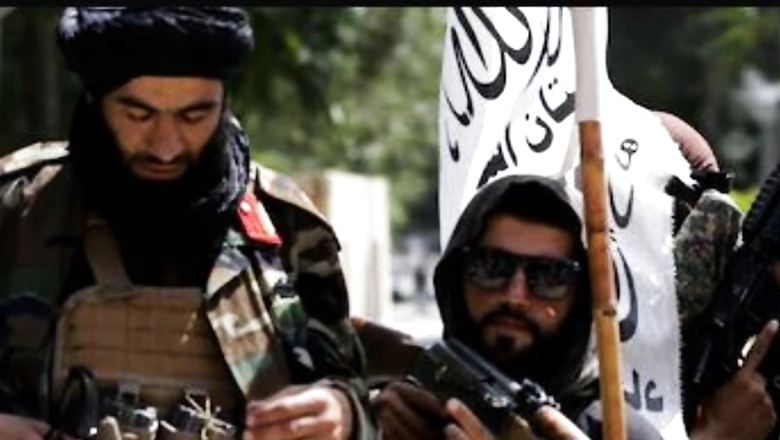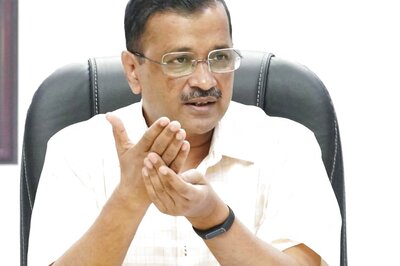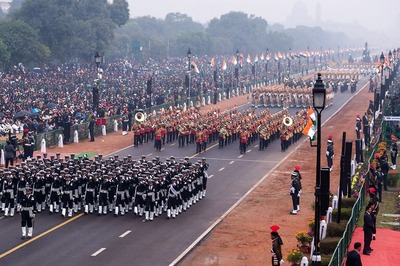
views
From the graves of the jihadists across Afghanistan, Abdullah Azzam had hoped, would rise the fragrant scent of martyrdom: Instead, the fetid stench of disillusion suffused the air. For a decade, the legendary Islamist leader had forged the global jihadist movement in the Afghan crucible, funding and mentoring the leaders of the mujahideen, as well as al-Qaeda and the Lashkar-e-Taiba. Yet, Azzam recorded, the jihad had receded into oblivion at the moment of is triumph against the Soviet Union, “because of the misdirection of the Afghans themselves.”
“Instead of directing their guns against the unbelievers of India to liberate Kashmir, and to the Russians to liberate Tajikistan, they went at each other’s throats in a genocidal power-struggle for the remains of Kabul,” Azzam argued.
“They chose carrion over Paradise.”
Later this week, the Taliban is expected to install Maulvi Hassan Akhund as the Islamic Emirate’s new raees-ul-wazara, or prime minister. From American intelligence records detailing his career, it’s clear competence or charisma are not among the selection criteria that have driven Hassan’s appointment: one declassified cable recorded he was “considered one of the most ineffective and unreasonable Taliban leaders”.
Instead, Hassan’s central qualification is that he has no power-base of his own. Thus, he poses no significant threat to the leaders of the two major factions. He will preside over a cabinet divided between ‘Southern Taliban’, dominated by leaders hailing from the Kandahar region’s Durrani and Ghilzai tribal confederations, and the Eastern network, mainly from the Zadran tribe, led by Serajuddin Haqqani. Although the Taliban’s overall leadership will continue to be held by its emir, Maulvi Haibatullah Akhundzada, he has not been seen in months, and rumours of his death have long circulated.
The power-sharing arrangement—brokered by Lieutenant-General Faiz Hameed, the Director-General of Pakistan’s Inter-Services Intelligence Directorate—is at best precarious. Ideology isn’t the issue, as Azzam had imagined. The new raees-ul-wazara is a hardliner, alleged to have supervised the destruction of the Bamiyan Buddhas in March, 2001, and remains listed as a terrorist by the United Nations.
Instead, the real problem is the character of the Afghan state itself: there just aren’t enough revenues for the Taliban’s competing warlords to sustain what the scholar Antonio Giustozzi has called their Empires of Mud.
Inside the Taliban leadership
Likely born in the village of Pashmul, in Kandahar province’s Argandab, Hassan is believed to have been educated at a seminary in Pakistan, before joining the Hizb-e-Islami’s Khalees faction during the war against the Soviet Union. Like others, though, he retreated back to Pakistan in 1989-1992, as ferocious struggles broke out within the mujahideen over control of revenues and territory.
According to some accounts, Hassan was among the 30 clerics who then co-founded the Taliban, under the leadership of Mullah Muhammad Umar—also, a Kandahari. From 1997 to 1998, Hassan served as acting minister for foreign affairs, disappearing for some time after that during a leadership purge carried out by Mullah Umar. Then, he returned to serve until 9/11, in the Islamic Emirate’s ministries of defence, intelligence, interior and communications.
From 9/11 on, Hassan retained office in the Taliban, but never acquired a significant leadership role. He currently serves as the head of Taliban’s rehbari shura, or leadership council—a body with formal status, but little military or financial heft.
Hassan’s two deputies may be Baradar—the Taliban’s chief negotiator with the United States in Doha, and leading Kandahari contender for the raees-ul-wazara’s position—along with Mullah Umar’s son and heir, Mullah Muhammad Yakub. Baradar, earlier the Taliban’s minister of defence, had become de facto leader of the organisation after 9/11, after Mullah Umar.
In 2010, Baradar was arrested by the ISI, likely the consequence of his decision to pursue independent peace negotiations with the United States in 2004 and 2009. He was released by the ISI in 2018, and began peace talks in Doha.
For his part, Yakub was given charge of a part of the Taliban’s military operations in 2016, rising to become their overall commander in May, 2020. The military role was given to Yakub by Maulvi Haibatullah in 2016, scholars Yelena Bieberman and Jared Schwartz have recorded, in an effort to cut Serajuddin Haqqani to size. Like Baradar, Yakub had been held out as a possible contender for the second Islamic Emirate’s chief executive—but resistance from the Haqqanis appear to have ended his prospects.
The Taliban’s power-sharing deal proposes to give Serajuddin Haqqani the role of interior minister, as well as the right to nominate the governors for the eastern Afghan provinces of Paktia, Paktika, Khost, Gardez, Nangarhar and Kunar. In other words, the ‘Eastern’ Taliban will receive a fiefdom of their own, free of Kandahar’s reins. Taliban leaders from the Eastern provinces—known as Loya Paktia, or Greater Paktia—already enjoy de facto authority. For all practical purposes, Anas Haqqani, brother to Sirajuddin Haqqani, and his paternal uncle, Khalil-ur-Rehman Haqqani, govern Kabul.
Likely, the veto given to the Haqqanis over the Taliban leadership has something to do with its demonstrated capacities for violence The Taliban’s Pakistani affiliate, the Tehreek-e-Taliban Pakistan, sheltered under the Haqqani umbrella in Loya Paktia; in recent weeks, the jihadist group has sharply escalated attacks against the Pakistan Army, signalling its anger with the ‘Southern’ Taliban to dominate the power structure.
The Haqqanis were, rightly or wrongly, also suspected by some southern leaders of having a role in last month’s savage Islamic State suicide bombing at Kabul airport. The Haqqanis have an old relationship with some Islamic State commanders, many of whom were earlier in the TTP.
Inevitably, the power-sharing agreement will create new problems. Among the key dissidents could be Abdul Qayum Zakir, who had been nominated as interim defence minister after the fall of Kabul. Helmand-born Zakir, served in the First Emirate as deputy army commander, northern front commander and minister of defence, spent time both in Guantanamo Bay and Pul-i Charkhi prison, before being released in 2008.
The path ahead
Factional struggles like these might be papered over by the power-sharing deal: both sides have an interest in ensuring there is at least a notional government that can be given international recognition. Few, though, would bet on the deal’s durability. The Taliban’s military factions are estimated to have earned revenues of tens of millions of dollars from narcotics trafficking, tolls on highways and extortion targeting small-scale mine operators. Each commander must ensure control of this income, or risk the disintegration of his empire.
Even more important, the rival factions will also struggle to expand their power-base by seeking control of revenues in large cities like Kabul, Mazar-e-Sharif and Kandahar, as well as foreign aid flows.
The leadership returned from Doha, moreover, is resented by many rank-and-file Taliban, as well as their district-level commanders. “I talked to a number of fighters posted outside offices and at crossroads across eastern Afghanistan”, says a Peshawar-based journalist who recently travelled in the region. “They almost all said they had not fought jihad to become chowkidars [watchmen]”.
In addition, the new government will have to face the challenge of being unable to pay salaries to some 300,000 former military and police personnel who have now returned to their villages.
Foreign governments could also seek to leverage these schisms. Earlier, Zakir had served as the head of the Taliban’s military commission before being removed by slain emir Akhtar Mansoor. His successor, Ibrahim Sadr, was in turn relieved by maulvi Haibatullah, and replaced with Yakub. Sadr and Mansoor both belong to the Alizai tribe, and were ideologically opposed to the peace process.
Zakir had responded to this assault on his power by developing a close financial and political relationship with Iran’s intelligence services using it to counter-balance the Pakistani ISI.
Fighting broke out between the mujahideen at the high noon of their success against the Soviets for just such reasons. Each mujahideen warlord needed the revenues from cities to sustain his empire—and to ensure a rival could not capture them, and thus expand his power.
As the economic historian Tirthankar Roy has argued in a stellar essay, the Afghan state’s modern history has been shaped by resource poverty and a colonial authority which could stamp out opposition; those conditions still exist. The Taliban have the resources to fight an insurgency, but not to build a centralised state with a monopoly of coercive power.
Like their predecessors, the Taliban’s commanders may soon discover warfare isn’t just a means to gain power, but an end in itself. Abdullah Azzam’s lament for the mujahideen may turn out to be a prophetic pronouncement of the fate of the new Islamic Emirate.
Read all the Latest News, Breaking News and Assembly Elections Live Updates here.



















Comments
0 comment